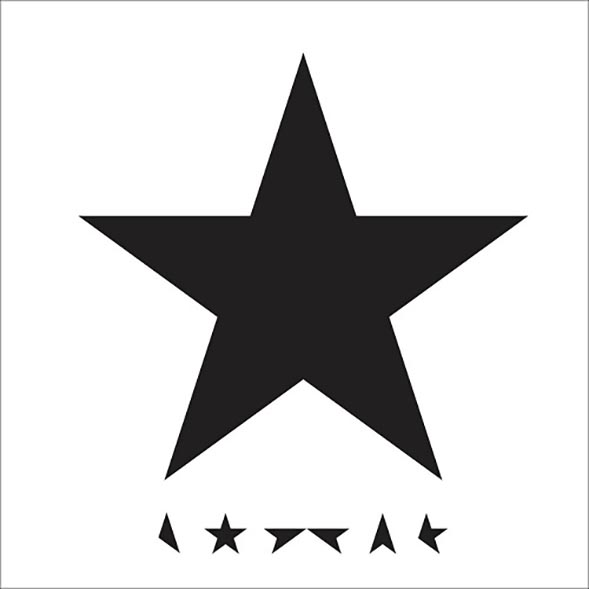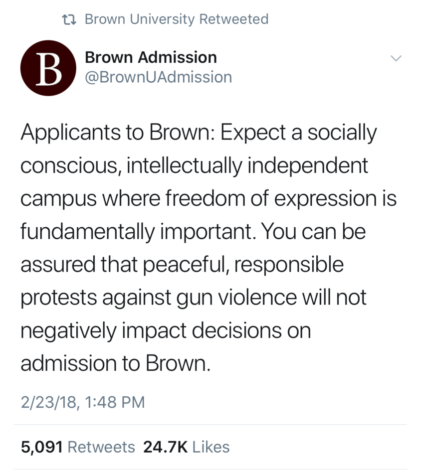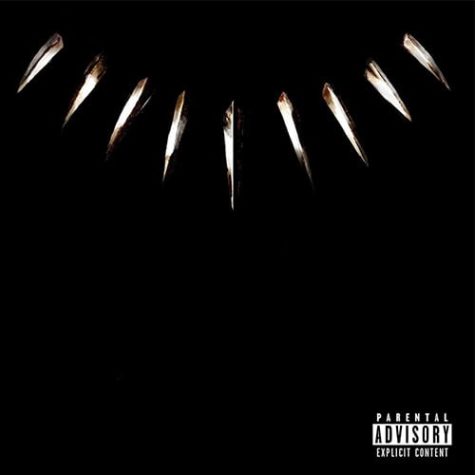Review: David Bowie “Blackstar”

I woke up at 7:45a.m. on Monday, January 11, to the electronic sound of “Rella,” by Odd Future, my alarm tone for the past year.
Turning off the alarm, I noticed that I had a text that I recieved at 4 a.m., while I was asleep. My eyesight was still fuzzy, so I didn’t see what it said. I set my phone down and decided to read it later.
It being a late start day, I was feeling content.
I crawled out of bed and lurched to my bathroom. Looking in the mirror, I wasn’t surprised to find my incessant acne still in tact and my hair strewn all over the place.
Seemingly, nothing had changed.
I took a shower, which lasted around 15 minutes, and walked out feeling refreshed. I wrapped myself in a towel and walked back to my bedroom.
I sat down on the edge of my bed, and eagerly grabbed my phone, interested in what the aforementioned text could be in regards to.
“Austin. Bowie is dead,” it said, from a friend I hadn’t really talked to in a while.
Needless to say, I was pretty shocked.
I’m not gonna act like I spent the rest of the day in some sort of seemingly endless depression, because I didn’t.
Sure, I felt sad, but the rest of my day carried on normally. I cracked stupid jokes at the expense of others with my friends, I had the daily anxiety attack in Honors Chemistry, and I inadvertently made an ass of myself while trying to impress people. Normal stuff.
But Bowie was definitely on my mind most of the time.
He really was the first artist I became obsessed with. Aladdin Sane is still one of my favorite albums ever. I think The Rise and Fall of Ziggy Stardust and the Spiders From Mars is a glam masterpiece. Hunky Dory is full of some personal favorite hidden gems and deep cuts, like “Andy Warhol,” and “Queen Bitch.”
Through David Bowie, I was led to other artists that I still love. Klaus Nomi, Lou Reed, Iggy Pop, the New York Dolls, etc.
I don’t like any of them as much as I like Bowie though.
I don’t really know where I’m going with this. Let’s just leave it at this: David Bowie will be deeply, deeply missed.
A couple days before his death, he released what would be his final effort, Blackstar. Here’s why it’s a masterpiece.
The Lyrics
The lyrics on Blackstar are enigmatic, poetic, and above all, shocking. My jaw literally dropped while listening to this album.
Bowie clearly knew he was going to die. Blackstar was intended to be his farewell to the world, and it hits hard.
“Look up here, I’m in heaven/I’ve got scars that can’t be seen/I’ve got drama, can’t be stolen/
Everybody knows me now,” he wistfully sings on “Lazarus,” the album’s centerpiece.
Other lyrics paint a portrait of a man struggling to comprehend his impending death. It’s sickening to listen to, but also beautiful.
The lyricism is also dense and mysterious, something that can easily leave me bored, but this time I was almost hypnotized.
They’re so intricately crafted, it’s absolutely captivating.
“How many times does an angel fall?/How many people lie instead of talking tall?/He trod on sacred ground, he cried loud into the crowd/I’m a blackstar, I’m a blackstar, I’m not a gangster,” he sings on the album’s nine-minute opening track, “Blackstar.”
The opening track also functions as a deconstruction of the David Bowie mythos. He uses the song as a vehicle to strip off the layers of exaltation and present himself as human.
“I’m a blackstar/I’m not a filmstar/I’m a blackstar/I’m not a popstar/I’m a blackstar/I’m not a marvel star/I’m a blackstar.”
Bowie also includes literary references, my favorites being on the track “Girl Loves Me,” which is partially written in Nadsat, the fictional argot found in Anthony Burgess’ A Clockwork Orange, one of my favorite novels.
“Cheena so sound, so titi up this malcheck, say/Party up moodge, nanti vellocet round on Tuesday/Real bad dizzy snatch making all the omeys mad-Thursday/Popo blind to the polly in the hole by Friday.”
Spoken like a true droog.
The Composition
Blackstar is an artsy exercise in moody, avant-garde jazz.
The sound employs elements of ambient music and minimalism to provide an atmospheric experience that takes the listener to another world.
Bowie has a reputation as a chameleonic musical innovator, and this is album is no exception.
The ambient experimentation is something that Bowie picked up from Brian Eno, whom he forged a career-saving partnership with in the ‘70s with the famous Berlin Trilogy.
This is probably Bowie’s most cutting-edge effort since his days with Eno.
Interestingly enough, producer Tony Visconti said that the album is also heavily influenced by Kendrick Lamar’s To Pimp a Butterfly, as well as industrial hip-hop group Death Grips.
(Side note: To Pimp a Butterfly was the best album of 2015, and if you disagree, you’re wrong.)
Bowie being influenced by contemporary artists only further corroborates what a sonic innovator he was.
He was never comfortable with fitting into one niche. He would take whatever was popular at the time, and mold that into his own vision without ever seeming like he was pandering.
Blackstar is a perfect example of David Bowie’s bleeding edge experimentation that only makes me miss him more.
The Verdict
Blackstar ends Bowie’s career on a broodingly melancholy, avant-garde note.
The lyrics are oracular, and highlighted by an experimental, atmospheric sound.
This album is one of the few that find absolutely flawless. Maybe it’s just because he’s dead, but whatever. I love it.
My only warning to potential listeners is that it may not be as appealing to first time Bowie listeners. It’s somewhat of a challenging album, so I wouldn’t recommend it to those who haven’t at least heard one other Bowie album.
But I wouldn’t call that a criticism. This album is perfect.
Rating: A
Your donation will support the student journalists of Marquette High School. Your contribution will allow us to purchase equipment and cover our annual website hosting costs. You may become a PATRON by making a donation at one of these levels: White/$30, Green/$50, Blue/$100. Patron names will be published in the print newsmagazine, on the website and once per quarter on our social media accounts.

Austin Woods, senior, is the Associate Editor in Chief for the Marquette Messenger. Along with his involvement on the Messenger, Austin is involved in...





